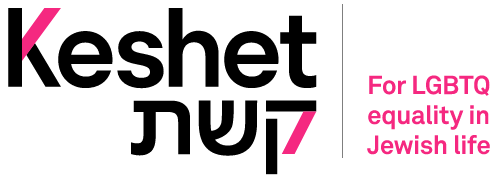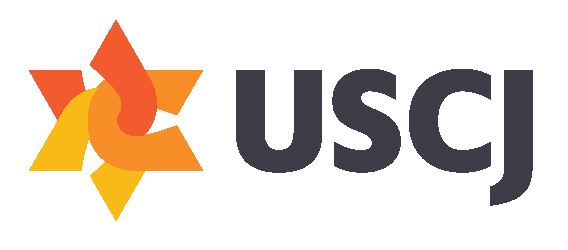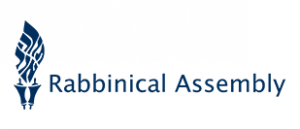Walking a Narrow Bridge
Kol HaOlam Kulo Rosh Hashanah/Kol Nidre
Day 2
5763/5782
ויוסיף דעת יוסיף מכאוב
The one who increases knowledge, increases pain (Kohelet 1:18)
Even our tradition understands that the more we experience of life, the more we know about tsuris, the troubles and woes of life. Many of us have experienced the tragedies of life, and many of us are natural worriers who take great pains to be safe. We read the newspapers, we listen and watch the news. We know that there are many disturbing aspects to our lives and to the lives of others. This is the time in our Jewish calendar when we take a heshbon hanefesh – we take account of our souls and examine whether we have been acting according to our values.
So how do we live in a world so fraught with danger? Do we take on one – and only one – issue to pursue, and leave the rest to other people? Do we focus only on ourselves and our families, and let the other families take care of themselves? Do we ignore what is happening either in our immediate vicinity or in other countries, other cities, other states? Do we remain inside our comfortable and safe places, insulated from poverty and violence and possible danger? Might there be times when we step outside of our comfort zones and reach across to others who come from different backgrounds, who may even challenge us to reassess our long held beliefs? How do we live out our core values as people of faith? Can we emulate the prophets of old who railed against injustice, even when it caused them discomfort? What prevents us from leaving our positions of comfort and privilege and fighting for justice for all? Nineteen years ago, I read the poem, “Walking a Narrow Bridge,” by Rabbi Joy Levitt. Based on Rabbi Nachman’s statement “All the world is a narrow bridge,” and the “essence of life is not to be afraid,” Rabbi Levitt expands and deepens his message, which is relevant throughout our lifetime. Our lives are a journey on a narrow, vulnerable bridge; a bridge that we all walk on: sometimes stumbling, sometimes limping, sometimes running or skipping, and sometimes just stopping to take a breath. And in those moments where I may feel frustrated, or angry, or overwhelmed, Reb Nachman’s wise counsel, encourages me to keep moving forward, subsuming my fear into action, for it is often fear that stops us from action.
Walking a Narrow Bridge
Kol ha-olam kulo gesher tzar m’od
The whole world is a narrow bridge.
Today we walk that narrow bridge,
Ever aware of the chasms on either side of us.
We know what is below us, around us.
It is violence, hopelessness, the death of the future.
Kol ha-olam kulo gesher tzar m’od
The whole world is a narrow bridge.
We know how narrow is the pathway on which we walk,
How rickety the bridge feels under our step
How little room there seems to be to maneuver; to change direction.
Kol ha-olam kulo gesher tzar m’od
The whole world is a narrow bridge.
And we are all on it. The whole world.
Our friends and our enemies and all of our children.
All of our Children.
Kol ha-olam kulo gesher tzar m’od
V’ha-ikar lo l’fachayd klal
The whole world is a narrow bridge
And the ikar – and the essential thing – is not to be afraid at all.
Because a greater danger than everything that lies around us
And beneath us is the fear that paralyzes us, that causes us
to stop in our tracks, unable to go back, afraid to go forward.
At this moment when we are most afraid,
when everything we see and hear is so very frightening,
when we are on the narrowest of narrow bridges,
it is at this moment that we hold onto the ikar,
the essential truth that fear robs us of hope.
Fear stops us from moving forward.
Kol ha-olam kulo gesher tzar m’od
V’ha-ikar lo l’fachayd klal
The whole world is a narrow bridge.
And the essential thing is not to be afraid at all.
To find the very best within us. To find the very best within all of us.
However hard it is. However long it takes.
I find this imagery compelling. Indeed, life is a bridge. In life, we go from here to there, careful that we do not take a wrong step and fall off. We cross bridges from childhood to adolescence to adulthood. We cross bridges from childhood to parenthood, from being single to being a couple, and perhaps back to being single again; we cross the bridge from having few possessions to having many. All of life is a bridge. And as we cross, some of us take more chances than others, some of us slip and head for the edge, and some of us never stray from the center. Except, perhaps, in the folly of youth, we walk the bridge carefully and with some trepidation. The older we get, the more we realize just how precarious the bridge can be, and just how close to the edge life and death, success and failure, wealth and poverty really are. Throughout life, as we walk along the bridge, we worry about status, about our belongings, about providing everything for our children. Most of all, we are ultimately worried about our own mortality and the mortality of those close to us.
Twenty years ago, the events of September 11 brought home the reality of just how narrow life’s bridge is for those of us in the relative safety and security of (privileged) America. In March 2020, as COVID-19 took hold of the entire world, we again were forced to reckon with the narrow bridge, in ways that are apparent now and ways that might be hidden away for a while. A lot more has also happened in twenty years, much of which continues to force us to peek over the edge, realizing how easy it might be to fall off. And so, to protect ourselves, we narrow our environment, we constrict ourselves, trying to exercise some semblance of control over our lives. And yet, when you really think about it, the bridge we walk on is the same bridge on which Al-Qaeda, Taliban, antisemites, racists and all whom we see as “the enemy” walk, for they, too, are on the gesher tzar m’od, on the narrow bridge.
As Rabbi Levitt points out, fear and worry are probably our nearest enemies. Fear, more than anything, holds us back from attaining our greatest potential. If we are too fearful, we begin to mistrust others, and we turn into ourselves. Worry, too, prevents us from reaching out to the stranger, from trying out new ideas and new paths. It prevents us from leaving the familiar. Fear and worry come in many shapes and sizes. We can be afraid of what others may think or say about us, and therefore forget who we are so that we please everyone else; we can be afraid of failure, and therefore never try. We can be afraid of our vulnerability and of our mortality and therefore lose sight of the life and the blessings in front of us. Indeed, “fear stops us from looking forward and robs us of hope.”
And so I return to my original question: how do we, as people of faith, navigate the bridge of life - the bridge on which we find righteousness and evil, life and death, comfort and discomfort? And I say ‘people of faith’ purposely because I believe being Jewish, or a member of any religion, must be more than being a good person, it must include faith. Faith, or in Hebrew, emunah, is a belief that there is an order to the world, and that perhaps there is more beyond this world. Emunah and amen share the same Hebrew root: aleph mem nun. When we respond “amen” to another’s blessing, we are asserting absolute agreement, as though we said the blessing ourselves. Also related to emunah is an aman, an artist or master craftsman - a person who creates an image reflecting a truth. God, like each of us, is an aman. Together with God, we are the artists who create our own lives. Emunah, I believe, is the antidote to helplessness, powerlessness, fear, and mistrust. It is faith in our own goodness and in the goodness of others; faith in our ability to have a positive effect on the world. Emunah allows us to transcend the limited area that we understand, that which comprises our personal worlds. Faith allows us to move beyond, to conquer evil in our world, and evil in ourselves. For me, it is also faith in Adonai. We are limited beings, God is limitless. Trusting in God’s presence in our world, God’s guidance and participation in our lives, gives me the strength to move beyond my fears and to make a difference in the world.
I began with a quote from Kohelet: “The one who increases knowledge, increases pain.” As Bruce Heitler comments on this passage:
The essence of wisdom and knowledge is the ability to predict and influence what will happen in various circumstances. However, if we focus merely on wisdom and knowledge, and not on uncertainty and the inherent limits to our power, then frustration, disappointment and pain result. We deceive ourselves into thinking that we have more influence than we really do. The only alternative to the pain of recognizing that we are not entirely in touch with the underlying nature of things is to cultivate an appreciation of the uncertainty itself. We are finite, God is infinite: what more could be expected of us?
Beginning in the month of Elul, in preparation for these Yamim Noraim, these Days of Awe, we read Psalm 27. The Psalm begins with what seem to be rhetorical questions:
ה' אורי וישעי ממי אירא?
Adonai is my light and my help. Whom shall I fear?
ה' מעוז-חיי ממי אפחד?
Adonai is the strength of my life. Whom shall I dread?
Clearly the Psalmist wants us to believe that we will not be afraid because Adonai is with us. But , like us, the Psalmist has his moment of doubt:
אל תטשני ואל תעזבני אלהי ישעי
Do not hide from me; do not reject Your servant. ….do not abandon me
Forsake me not, my God of deliverance….
The tragedies in our world are real. The Psalmist struggled, as we do, with the juxtaposition of God’s guidance and presence and these incredible experiences of suffering. But in the end, the psalmist says:
Yet I have faith that I shall surely see
Adonai’s goodness in the land of the living.
Hope in Adonai
Be strong, take courage, and hope in Adonai.
In this next year, as we cross that narrow bridge, may we walk with one another, friend and stranger and may we allow Emunah and Adonai’s presence - however you understand Adonai - to give us the courage to overcome our fears.
And let us say, Amen.



